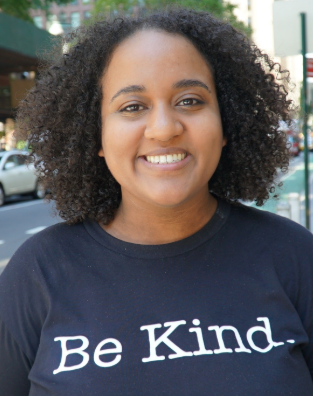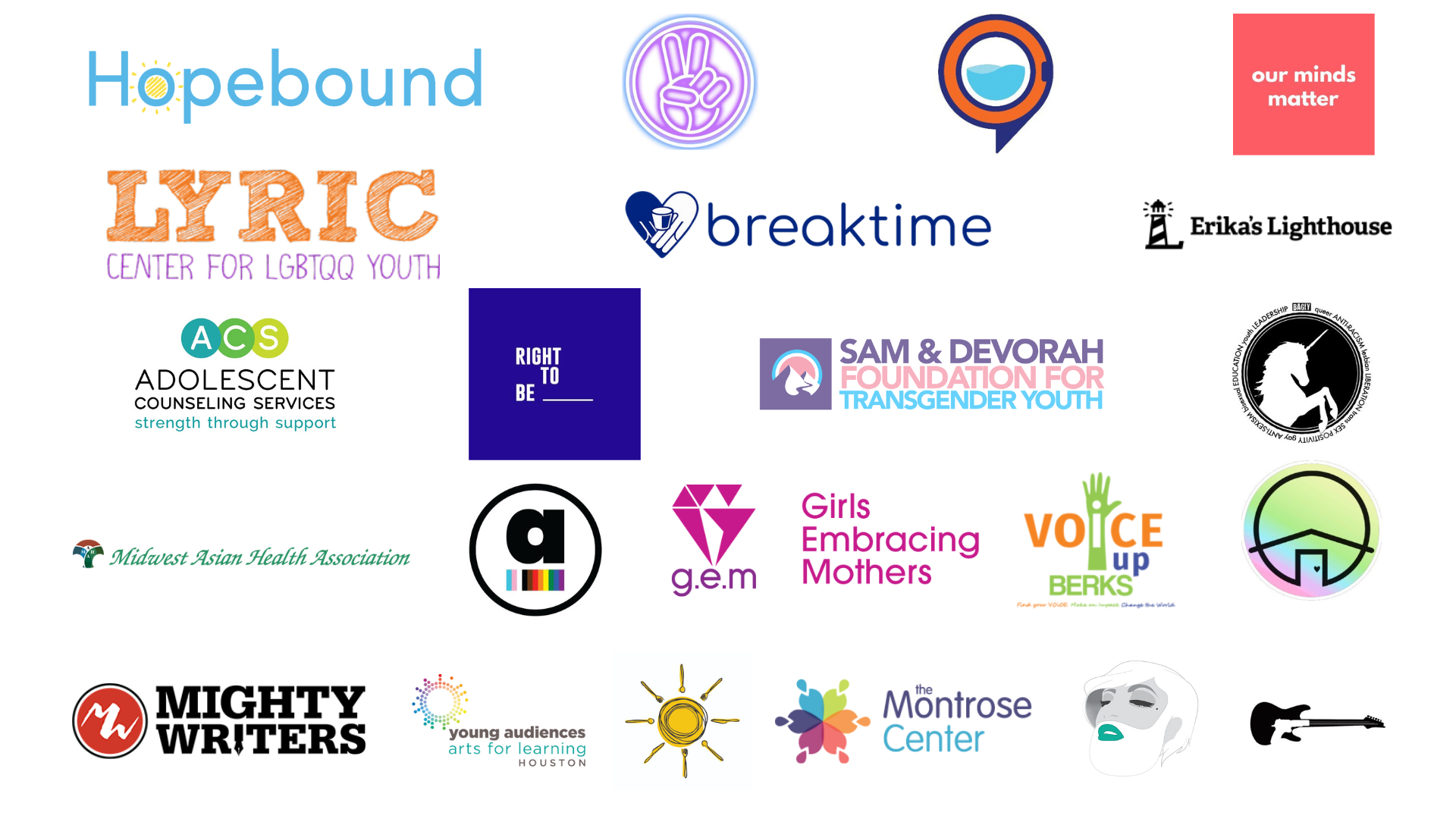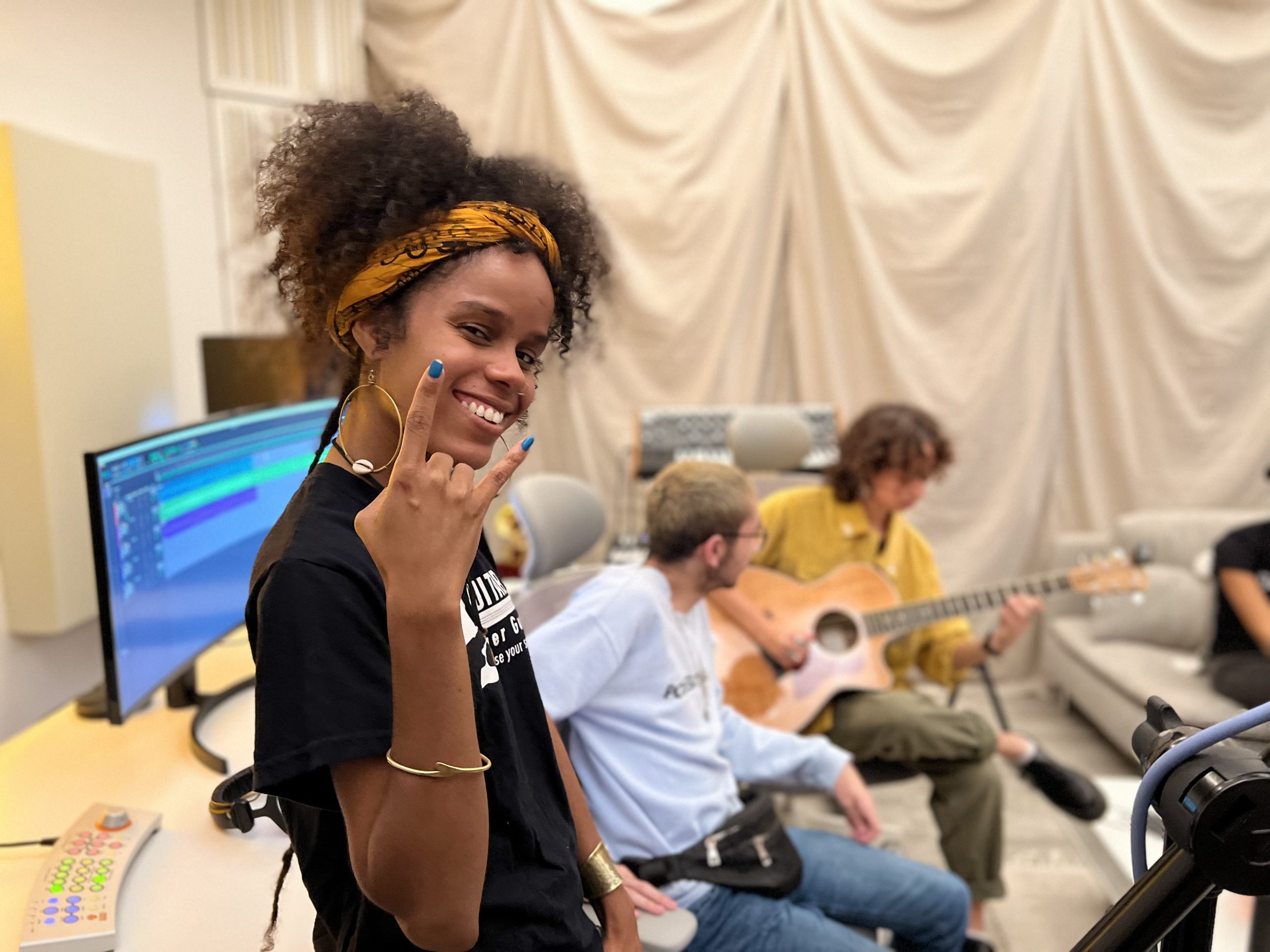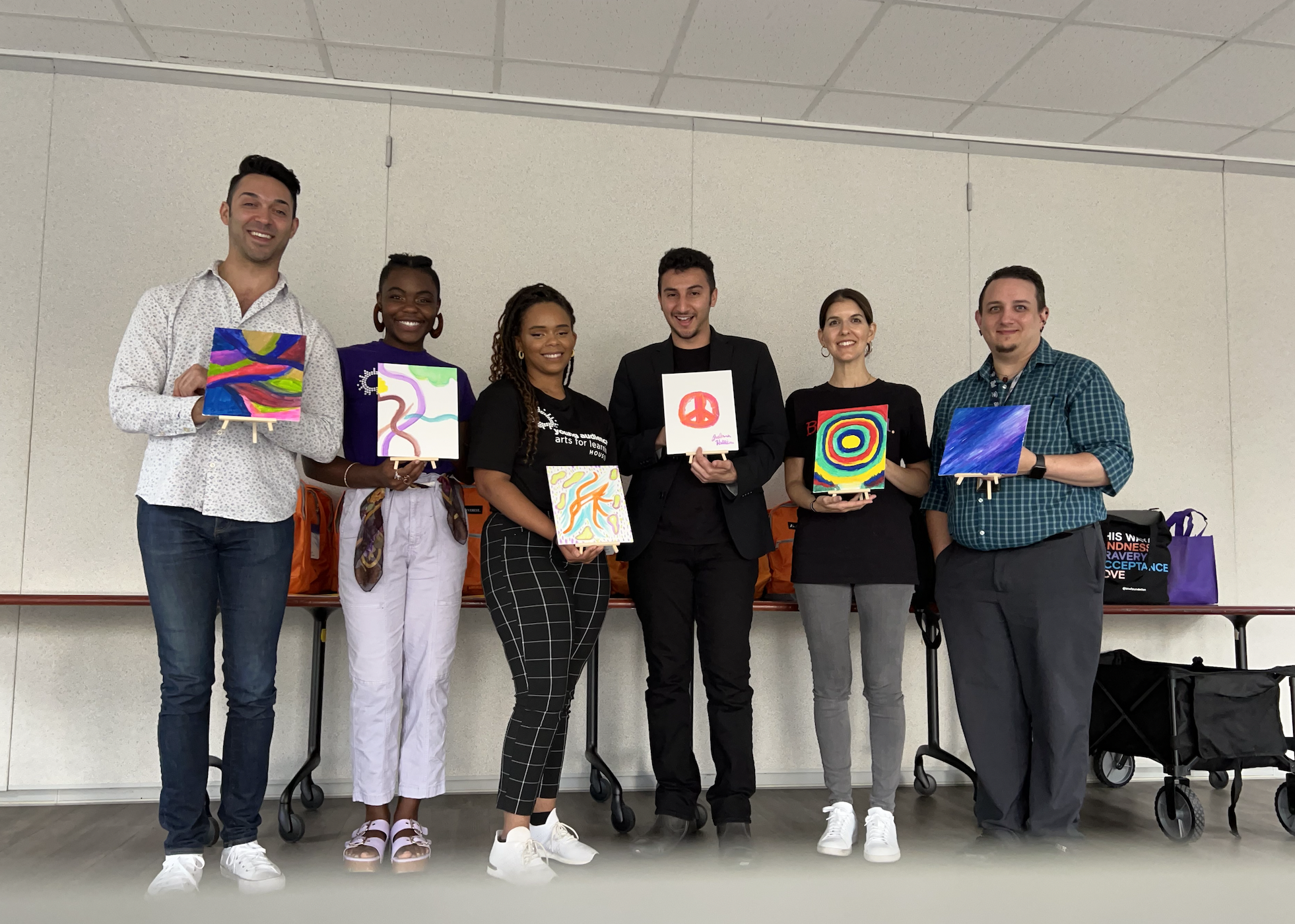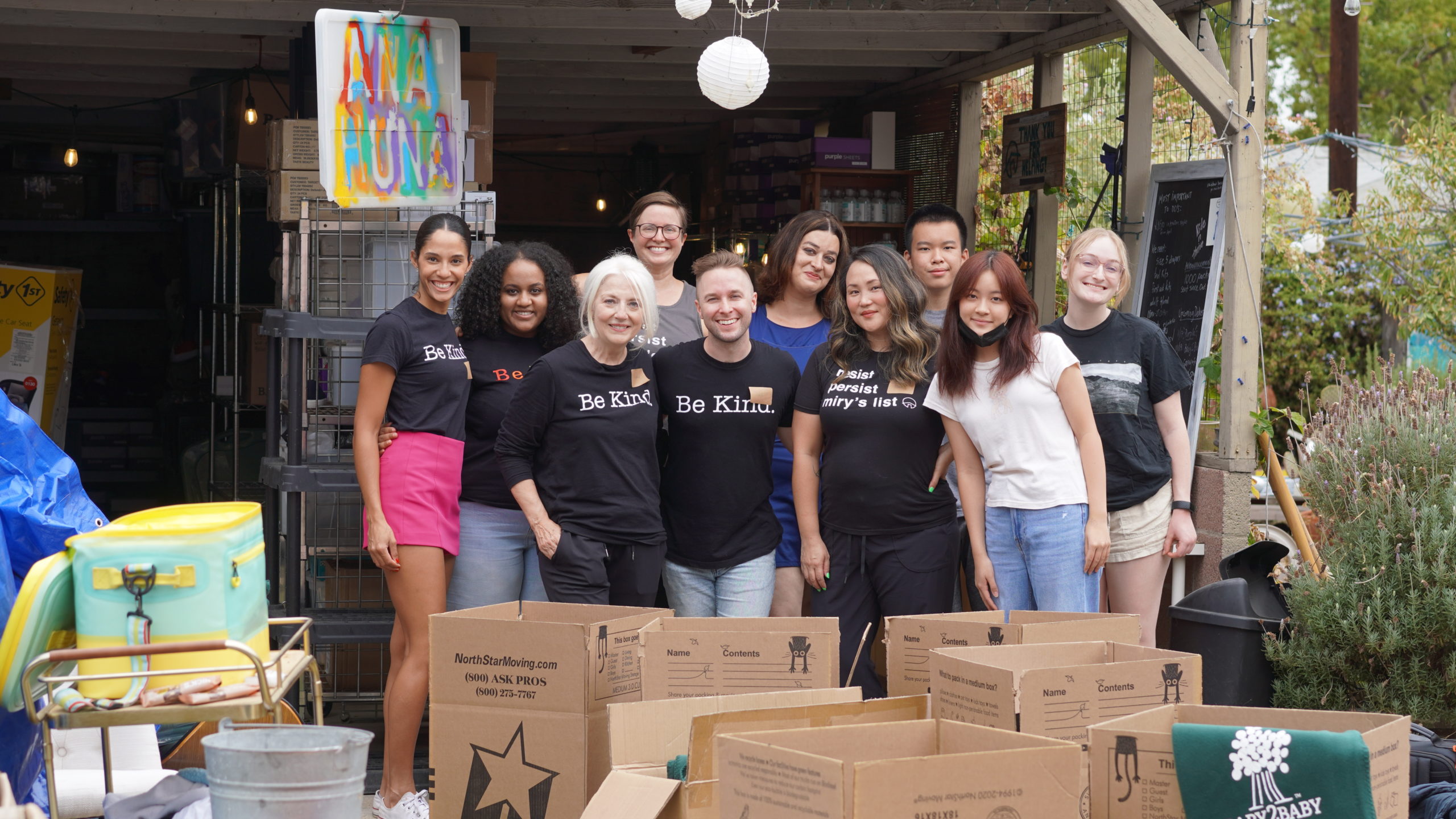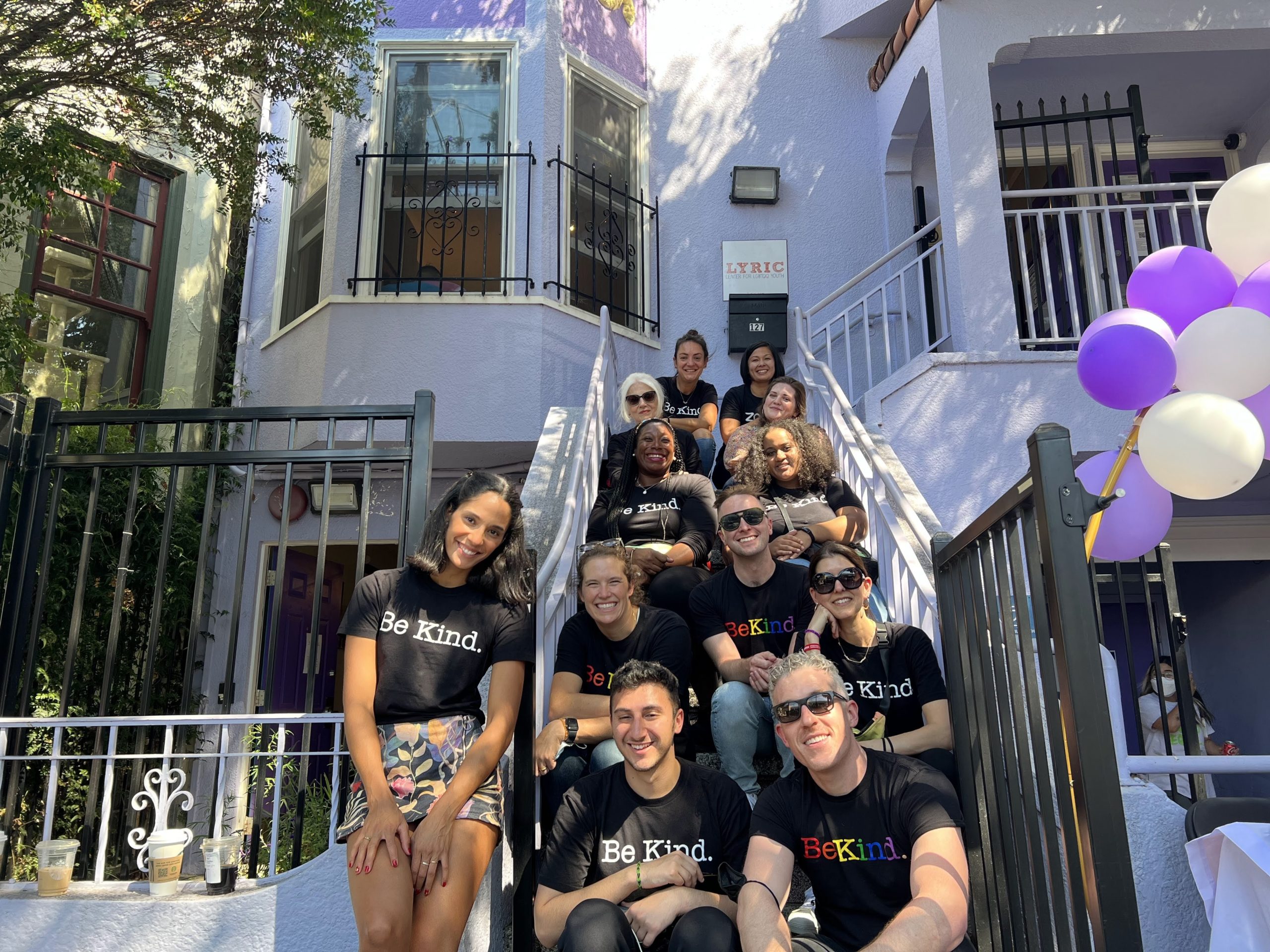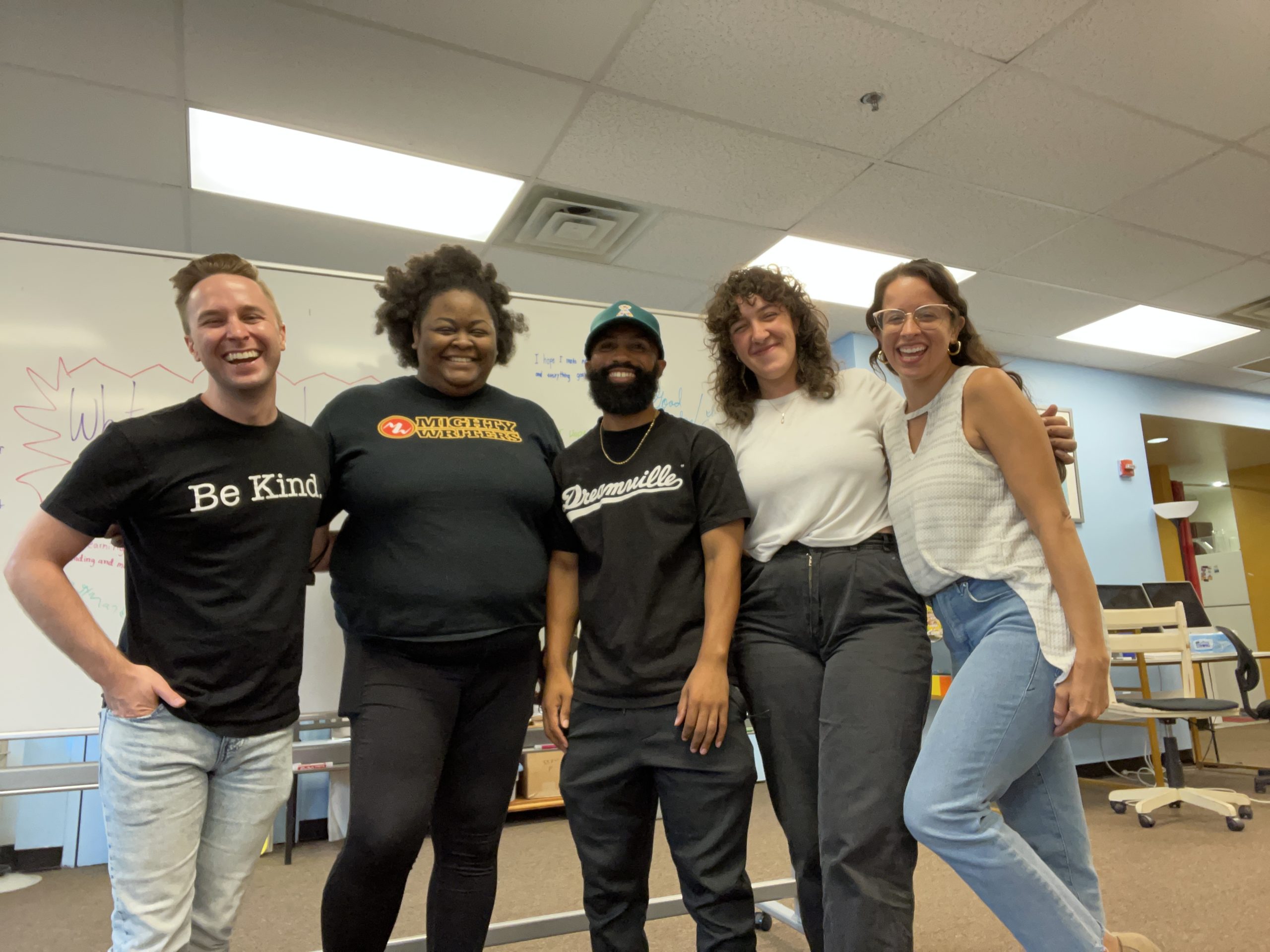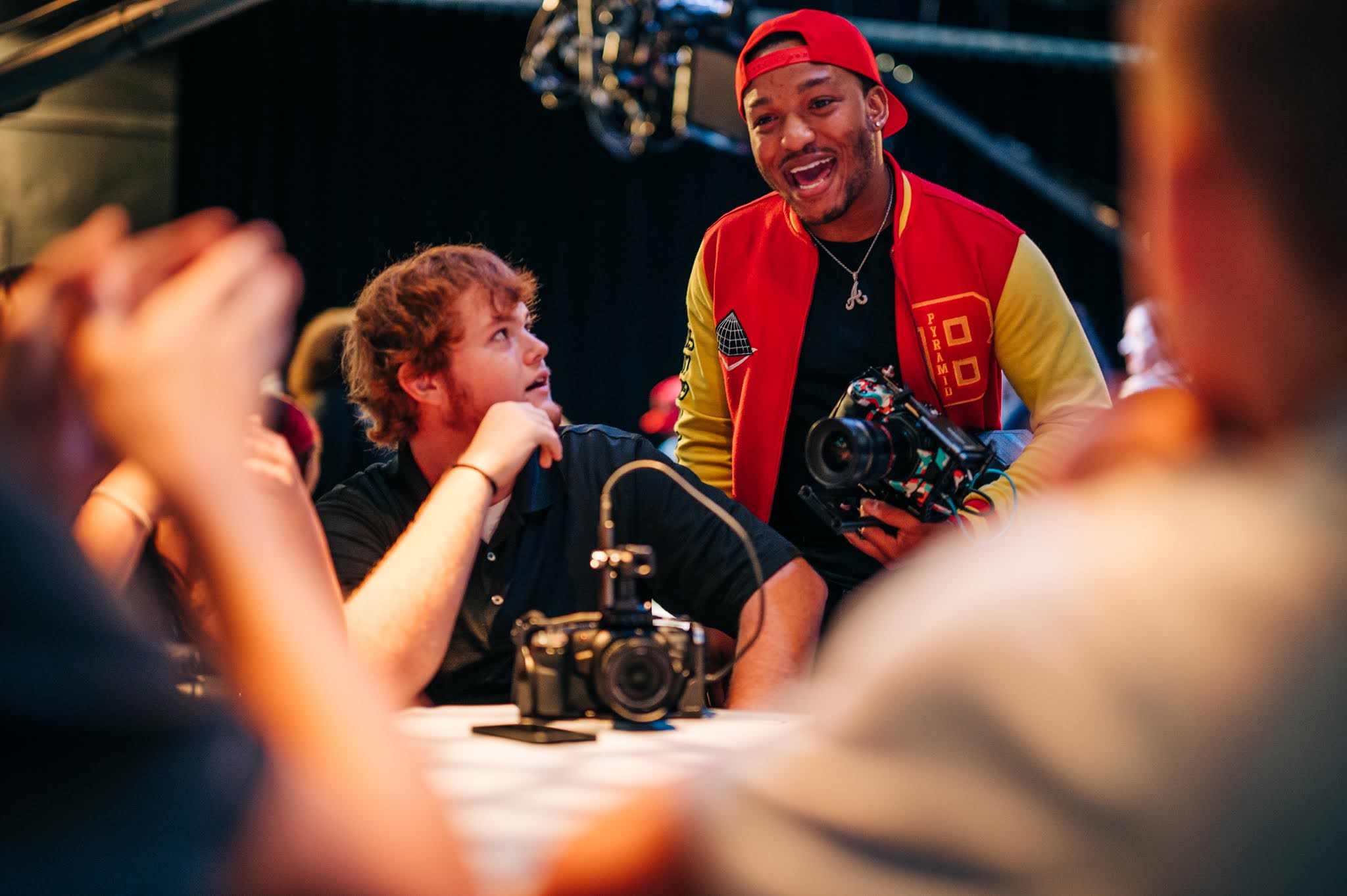Josh H., Shadille, and I had the immense privilege of meeting with Civic Suds and Our Minds Matter in Washington, D.C. to celebrate and amplify their work in the community and as Kindness in Community Fund recipients.
I have lived in D.C. for nine years and spent most summers in the city growing up, and I’ve always known the city to be a vibrant place, a chocolate city, filled with civic engagement and opportunity for young leaders to transform the district and even world for the better. Visiting with the young people who are advising and leading Civic Suds and Our Minds Matter is further evidence of something I hear Cynthia say often, “Young people are not our future leaders. They’re our leaders today.”
At Civic Suds on Sunday, we met with the organization’s executive director, Allister, in an old laundromat he will renovate into a new, safe laundromat the community has needed (right now there is no laundromat serving the over 70,000 people in the ward), affordable housing on top of the laundromat, and an attached community center. The idea is to meet families where they are with needed services while they’re at the laundromat for a couple hours.
Allister also introduced us to youth community leaders, local educators, elected officials, and students who are all joining together to ensure this center will be a place that serves the needs of the community rather than telling the neighboring community what they need. Shadille led us in an exercise where we closed our eyes and imagined what was to come in the space. When we opened our eyes, we pictured the beautiful laundromats saving community members 20-minute trips out of state to clean their clothes, a center offering community services like tutoring, mental health support, and community fridges, and ultimately a safe space for the district’s most vulnerable youth to gather and find community. It was a moving exercise and an opportunity to dream of solutions together.
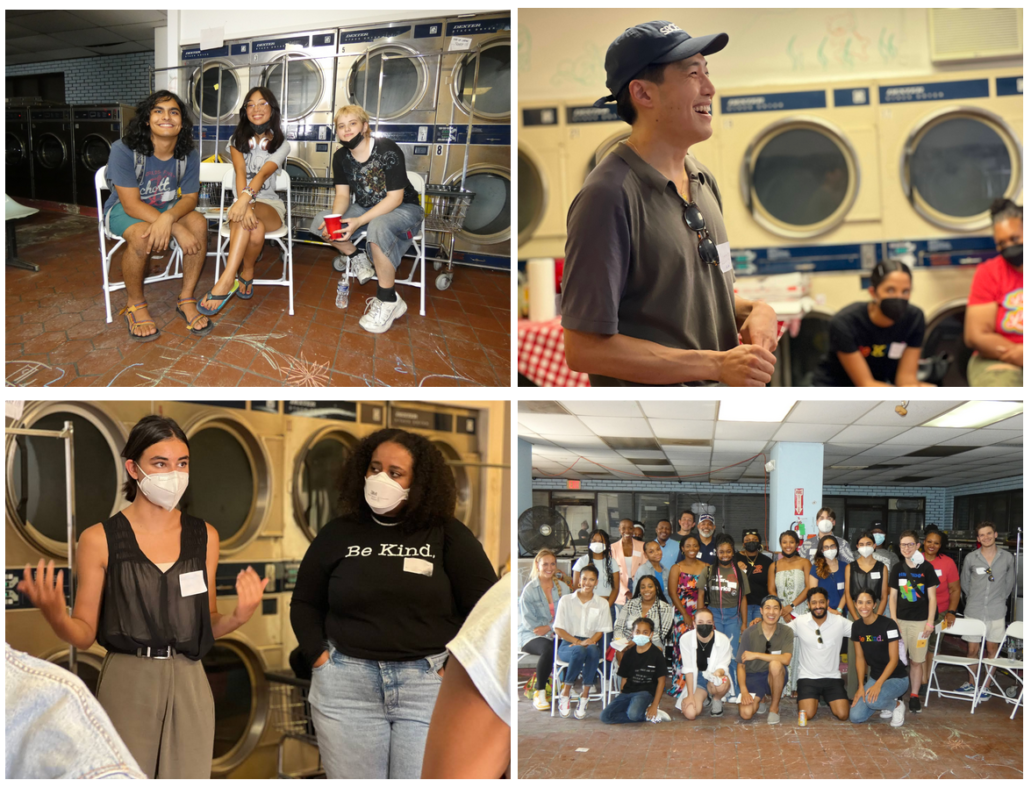
At Our Minds Matter on Monday, we met with the team at OMM and the student leaders who are working, within their student-led club model, toward a day when no teen dies by suicide. Each student who joined was both a leader of an OMM chapter at their high school and also an advisor to the organization. We had an intimate conversation about the importance of talking about mental health and what it means to make sure terms and resources are accessible to as many students as possible.
Each student also shared how they bring conversations about mental health and equity into their own interests. One student is a nationally-ranked dancer and social media genius who shared a series of videos dispelling myths about mental health driving her fellow students to evidence-based information and resources. Another student organized a drive at her school to pass out as many brochures and affirming cards and resources as possible that felt accessible and interesting for a teen to read. We also learned from a student who is working with her teacher to revamp a world history course at her school so it is more reflective of perspectives outside of an exclusively western one. Lastly, one student discussed outreach to different clubs and affinity groups at school to increase diversity at their chapter in every sense.
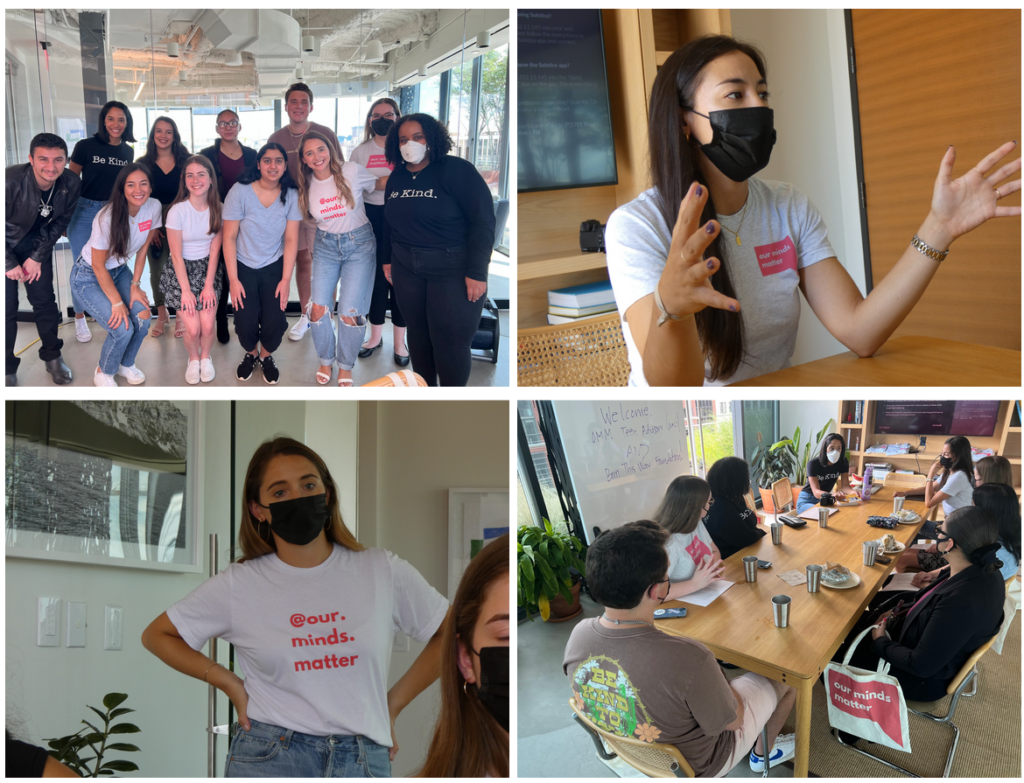
Young people understand that supporting mental wellness means access to safety, community, clean clothes, food, housing, health care, equity-informed curriculum, and more. Mental health means caring for the whole person, and it was an honor to meet with the young people doing just that in Washington, D.C.




